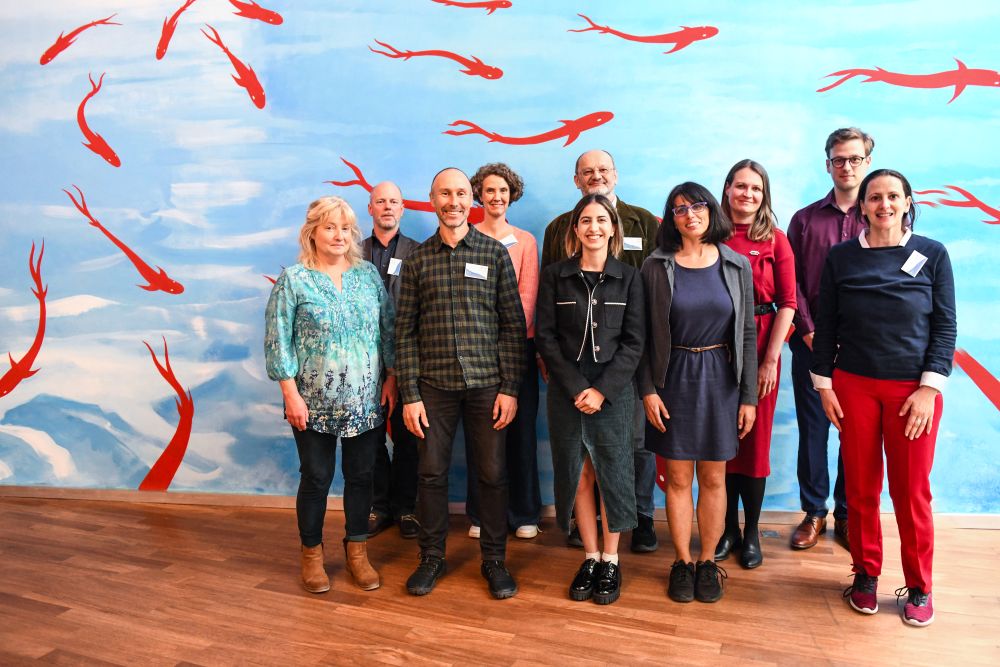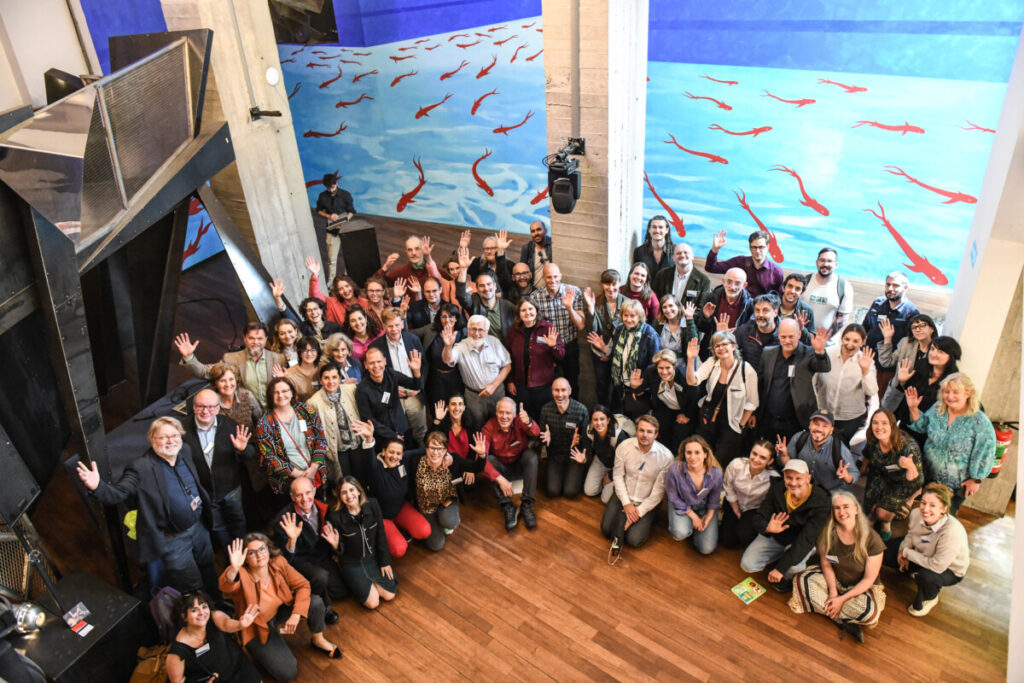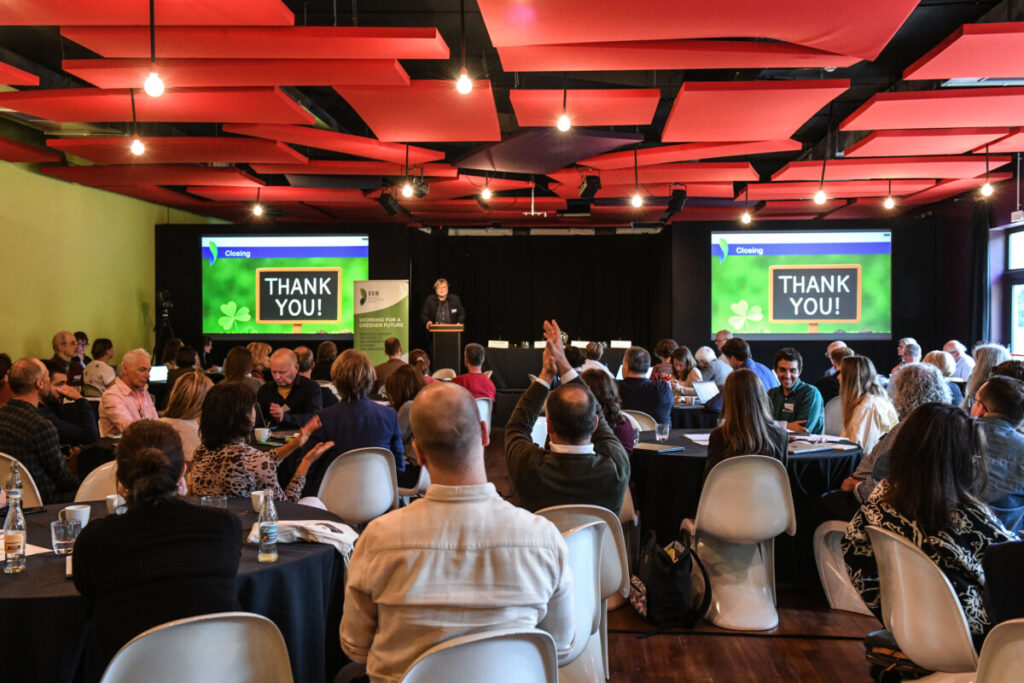EEB elects new Board, welcomes 12 new members, and charts the way forward at 2025 Annual Events in Brussels
Members of the European Environmental Bureau (EEB) gathered in Brussels to elect a new Board and President, welcome 12 new organisations, and chart together the way forward as Europe’s largest and most diverse network of environmental NGOs.
During the EEB’s Annual General Meeting, hosted this year in Brussels, Belgium and online, Toni Vidan, a well-known expert in sustainable energy and environmental policy from Croatia, was voted and re-elected as the President of the EEB.
The network also elected a new Board which brings together seasoned and emerging leaders from across the continent. Joining the President are the Vice-Presidents Anke Stock of Women Engage for a Common Future (European member organisation), Pegah Moulana of Youth and Environment Europe (YEE) (European member organisation), Bernhard Zlanabiting of Umweltdachverband (Austria), Andriy Andrusevych of RACSE (Ukraine), Treasurer Stefan Scheuer of CHEM Trust (European member organisation) and regular Board members André Prescher-Spiridon of BUND (Germany), Arnaud Schwartz of France Nature Environnement (France), Attracta Ui Bhroin of An Taisce (Ireland), Ivana Maleš of INCIEN (Slovakia), Karima Hammouche of Natur&Ëmwelt (Luxembourg) and Nuria Blázquez of Ecologistas en Acción (Spain).

The EEB also celebrated a milestone in its ongoing growth and outreach by welcoming 12 new member organisations into its network. These include Generation Future (France), Eliante (Italy), Revo Sustainable Prosperity and Fundación Renovables (Spain), CIPRA International (a European-wide network), Institut Cirkulární Ekonomiky (Czech Republic) and IRIS (Portugal) as full members. The EEB also welcomed the Shipbreaking Platform (a European-wide network), Enraiza Derechos (Spain), Palombar (Portugal), Fundacja Rodzice dla Klimatu – Parents for Future (Poland) and Grondrecht (Belgium) as associate members. Two organisations – Organization Earth (Greece) and Changing Markets Foundation (Netherlands) – were formally upgraded to full membership status, while two outgoing Board members, Axel Jansen and Bjela Vossen, were nominated honorary members of the EEB for their important contributions to the network in various roles spanning over decades.
With these new members, the EEB now brings together 196 groups from 41 countries.

Strategy Forum: civil society at the crossroads of a changing world order
A highlight of the Annual events was the EEB Strategy Forum, titled “CSOs at the Crossroads of a Changing World Order”. This high-level forum offered space for member organisations to collectively assess the EEB’s Long-Term Strategy 2020-2030, and reflect on urgent global challenges shaping the environmental movement today. Participants explored how to counter disinformation, respond to declining civic space, address the implications of artificial intelligence, and adapt to rapid shifts in geopolitical and diplomatic relations.
The Strategy Forum featured engaging keynote interventions, dynamic and solution-oriented discussions, and an empowering closing session with concrete proposals for action. In a stirring keynote address, Professor Albena Azmanova from the City University of London urged civil society to push forward a green and social deal despite growing threats to democracy, rampant disinformation, and short-termism in political decision-making.

The mid-term review of the Long-Term Strategy will feed into a broader consultation process involving NGOs and partners throughout 2025, ensuring that the EEB stays at the forefront of impactful environmental advocacy across Europe and beyond.
During the AGM, members adopted Work Programme priorities and the budget for the coming year, and endorsed an emergency motion addressing current geopolitical and environmental challenges:
“The EEB expresses its solidarity with humankind the world over. We call on all States to increase their humanitarian aid in the face of famine, threat of famine, disease and suffering consequent on natural and man-made disasters and conflicts.
In particular we: express our serious concern at the significant reduction and termination of major international aid programmes and funding by certain Countries whose role has been of profound importance.
We condemn the blocking of humanitarian aid, either deliberately or in passive complicity when failing to observe the obligations of third States in respect of breaches of international law.
We call urgently on all States to take all diplomatic and economic measures necessary to act to ensure the immediate safe passage of humanitarian aid, including to Gaza.”

